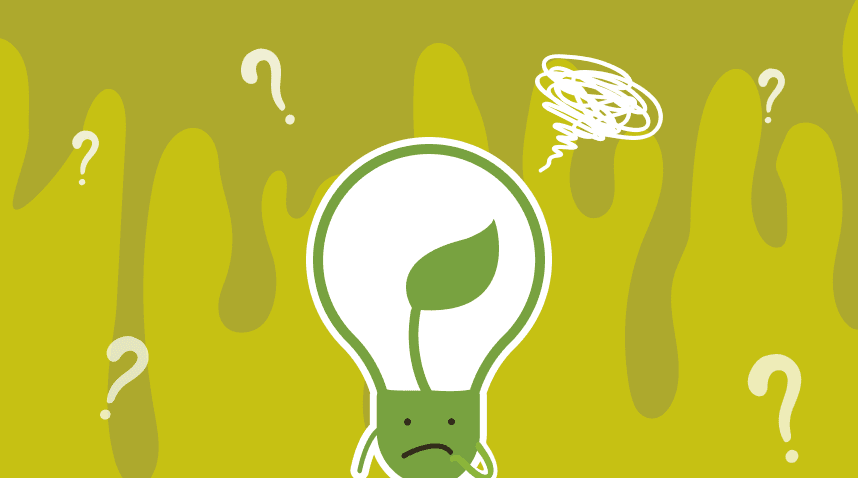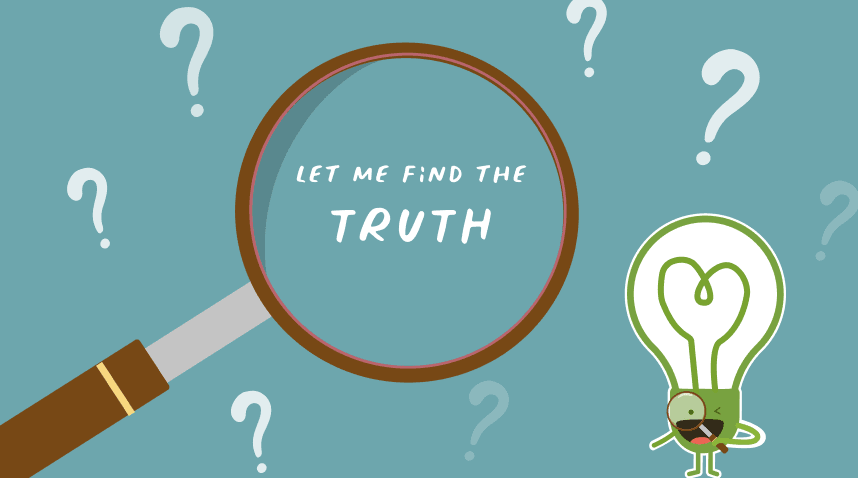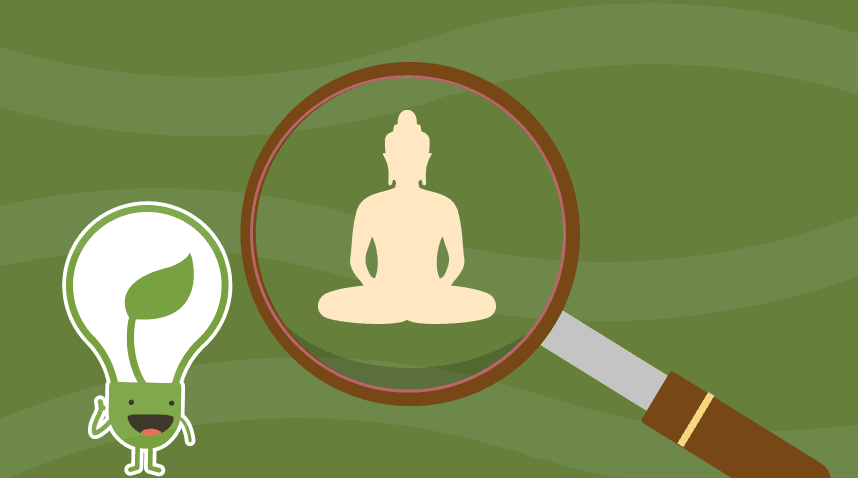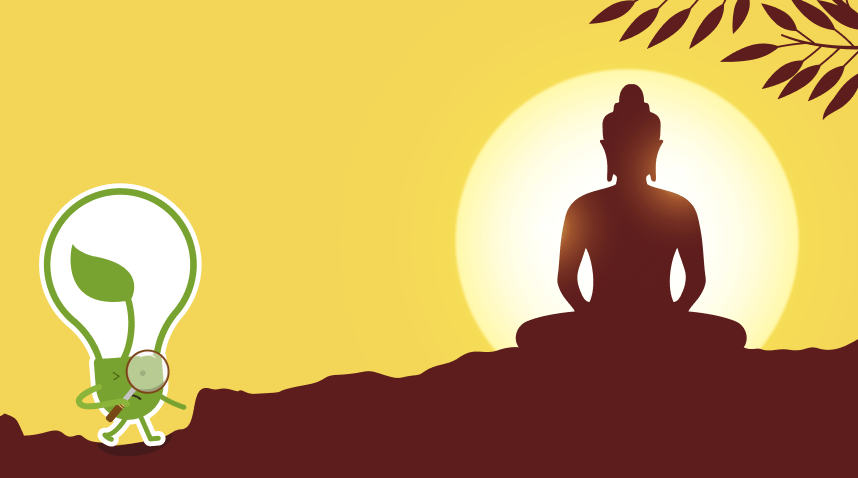TLDR: Doubt can eat you up. How do we deal with it when it is the core of our identity? Anonymous shares his experience in a non-Buddhist family and how it led him to the Dhamma.
Editor’s note: Talking about conversion can be a touchy subject. At HOL, we believe that one should be free to choose whatever faith you choose to pursue. There are various challenges on our religious journey and we are glad anonymous shared his struggles openly as it is not easy to do so.
Introduction
Hi there, my name is Anonymous and I am currently a practising Buddhist. As the title goes, this was not initially the case, and I would like to share more about that here.
Being born in a family of ardent believers of a monotheistic faith naturally made me fairly religious for the first 18 years of my life. Hence, to get to my faith in Buddhism, I had to go through the tedious process of:
1) struggling with the truth of the religion that I was born into (let’s call this my inherited religion or “IR”),
2) dropping my IR,
3) exploring the alternatives out there; and finally
4) ending up with Buddhism.
If that sounds interesting to you, do stay with me! Note that ‘Divine’ is used interchangeably with the concept of a supreme, all-powerful, deity (aka God). In addition, this article is meant to document my journey into the Dhamma and should not be taken as an ‘absolute’ comparison against monotheistic religions. Everyone is free to follow the faith that aligns most with them and brings them contentment.
1. Faith and Doubt

It was pretty challenging to practise my IR as you have to pray frequently each day. This was especially tough when I was in school, having to find time during breaks to fulfil my obligations. Regardless, I tried.
As much as I was fervent in the belief, the more I tried to understand the faith, the more questions I had. I studied the history of my IR, learnt its language, and memorised the scriptures in a formalised institution.
In my attempt to understand the religion, I noted internal inconsistencies in the holy book and encountered teachings which didn’t sit well with my personal ethics. I struggled with accepting things without understanding their rationale.
The issue with that was that my IR demanded full surrender and belief.
The more I tried to learn about my IR, the more the distance of doubt grew for me to have faith. Ironic, isn’t it?
What is faith to you? In my simplistic definition, faith is the acceptance of a claim without sufficient evidence.
I felt that it was intellectually dishonest to accept something despite a lack of evidence. I would reason (with my God-given intellect) that it is unethical to do that to yourself, as it equates to self-deception.
Self-deception is unethical because it equates to wilful recklessness in dedicating the scarce resource we call “life” to potential non-truths.
With the doubts that I had, I simply could not believe it. The two values of intellectual honesty and faith clashed. Think about it:
1) Value #1 is faith, the acceptance of a claim regardless of evidence. Faith in that claim implies that I did not consider the validity of the evidence.
2) Value #2 is intellectual honesty, the acceptance of a claim only when sufficient evidence is presented. Non-acceptance (not rejection) of the claim occurs when there is insufficient evidence.
I started to value intellectual honesty more as the debates continued in my mind.
2. Accepting doubt
Mind you, disbelief in my IR was punishable by an afterlife of hell. It would make my current life hell, too, given the level of pressure in the community and in my family.
By the time I was 17, the doubts that I’ve shared earlier would serve as my one-way ticket to eternal torment. It was therefore important for me to save my soul.
My last-ditch attempt at salvation was to will myself towards belief. I tried to suppress my doubts, much like preventing the escape of steam from a boiling kettle. I wished and prayed for those doubts to go away in the hopes that the divine would reveal himself. The pressure of doubt continued to build up the more I fought against it.
In the midst of my efforts sprang a realisation—I was literally trying to trade my piety, reverence, and mortal life for a better afterlife. Those drives which were previously subtle became clear as day. I reached a point where following this belief was more of a transaction than a religion.
Although I had no choice but to doubt, I do have a say in whether I would acknowledge it, or wilfully ignore it. So I chose the truth, accepting that I didn’t believe it. In choosing myself, I left the Divine behind.
Wise steps
Acknowledging any doubts that we have can be challenging but it is self-affirmative. The process does not end there. Investigate them!
3. Exploring truths

And so, I left the decades-long conditioning in a finger-snap. Apostasy was instantaneous upon that realisation, but it was also the culmination of a gradual struggle with doubt. The remainder of my hopes for the truth of my IR was dropped. A sense of loss followed, perhaps insecurity or guilt arising from tasting the sacrilegious freedom of self-acceptance.
Despite that, I could see that those were residual emotions which did not connect with the insight gleaned. Those emotions gradually ceased, and life and death were no longer relegated to an “almighty” concept in the great everywhere.
“Now is my chance”, I said to myself. I decided to redesign my life, hitting the “f5” on the keyboard of my being, erasing any inherited indoctrination by questioning my own ethics, worldview, and how I lived my life.
What an uncomfortable process! It felt like I was literally killing parts of a personality which I had built all my life—but alas, parts which were never “me” to begin with. (That is probably a topic for another day, however.)
In that journey of apostasy and agnosticism, I explored the religions of the world. If there is a Truth out there, let me find it. If it is true, it will not be hidden for long. A sincere God will not forsake a sincere seeker, would he (or she)? This aspiration grew in the newfound field of freedom.
Wise steps
Introspection is key to living an authentic life. In ensuring that the views we hold are aligned with our values, it may bring insight to reflect on the following;
- What are some of your unquestioned beliefs contributing to your core worldview which you hold to be true?
- Do they align with your values?
- If that belief is untested, and not aligned with your values, how does it feel to drop them? – Investigate further if there is resistance.
4. Finding the practice

I explored Abrahamic and Indic religions and, as you may have guessed, Buddhism. While some of those teachings, being new to me, had their own charm, Buddhism was compelling to me as it encouraged one to question and test any claims brought forth.
The Kalama Sutta states;
– … don’t go by… traditions, by scripture…
– When you know for yourselves that ‘these qualities are skilful; these qualities are blameless; these qualities are praised by the wise; these qualities, when adopted & carried out, lead to welfare & to happiness’ —
– then you should enter & remain in them.
In short, it does not encourage blind faith but empowers authentic acceptance through experiencing the truth. It is intellectually honest.
The Buddha was known to actively encourage enthusiastic followers to first inquire before converting to Buddhism.
“Householder, you should act after careful consideration. It’s good for well-known people such as yourself to act after careful consideration.” – MN 56, Upali Sutta
I tested the teachings and applied, and learnt and applied, iteratively.
The mutually supportive practices of cultivating kindness and awareness were making a clear change in my life. Being kind was a nice thing—to simply care for others and enjoy the naturally arising warmth in a smile, what a joy!
What of morality? It is expressed as a life of morality that is not just lived because the divine says it is right. It is not a demand, but a gift to see it for yourself!
When we live ethically, people around us are at ease, and consequently, we are gladdened. When we do no harm, our conscience is clear, and we are at ease—with ourselves (this is observable when I meditate, where I am my only company). Living ethically is a gift from me to others, and to myself.
Heaven used to be a subtle expectation, where my kindness and good behaviour came with terms and conditions attached—but no more. This way of life is pleasant. Each step on the path yields fruit to be tasted almost instantaneously, inviting one to take the next step. The more I enjoyed the process, the deeper down the Dhamma rabbit hole I went.
I gradually “became” a Buddhist, without even realising it.
Now, if you have tolerated me this far, I must come clean that I do have unresolved questions relating to the doctrine. However, taking the guidance of the Kalamas and the exhortation of the Simsapa Sutta (which this page is inspired by), I hold the handful of truths that have been tried and tested.
In this journey, it seems to me that having faith is more like falling in love. It is an invitation which calls you on. You do not beckon it. And in the gradual calling, I grew to notice momentary suffering, saw its attachments, and sometimes, if luck would have it, its dissolution.
Thanks for joining me in this journey from doubt to tested faith. 🙂


